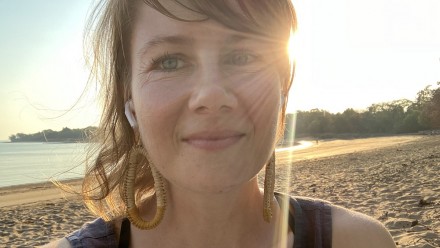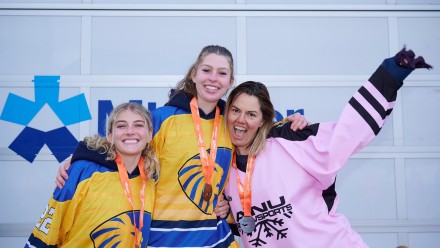A will to help grows into a global interdisciplinary peer-support program
Written by Barb Corapi
As the world watched in horror earlier this year as COVID19 case numbers in India exploded to over 400,000 per day, Associate Professor Dipti Talaulikar was formulating a plan to take action.
“I was getting calls from my networks in India asking for clinical advice and help. The health care system was so overwhelmed with patients that the nurses and doctors, and particularly junior doctors, were struggling to know how to respond.”
With the support of Mr Jay Poria, International Relations and Partnerships Manager, the COVID19 Peer Support Program was launched to match volunteer health care professionals in Australia with Indian health care professionals, to provide peer-to-peer support.
“We had a phenomenal response. Over 220 doctors, nurses, psychologists, physiotherapists, and medical students from every state and territory in Australia and even overseas, from countries such as Fiji and Singapore, have signed up to volunteer,” advised Associate Professor Talaulikar.
The program pivots, the collaboration grows
As the larger Indian hospitals and academic centres put solutions in place to support clinicians around the country, the clinical support service offered by the program were no longer needed.
“We were receiving requests for our experts to provide education to groups of health professionals; so we utilised the medical and health expertise we had from our volunteer pool to put together a webinar series with a focus on COVID19 topics.”
“At first we shared our expertise utilising Australian presenters with panel members from India. But as the series went on, we found that the contacts we had in India had more experience dealing with the Delta strain and had additional insight into topics such as paediatrics and maternal care; and in fact, we in Australia and other countries could learn from them,” explained Associate Professor Talaulikar.
The engagement from health care professionals has gone from strength to strength with over 500 professionals from over 36 countries joining the network since the webinar series launched in June.
The program operates with a core group of 17 volunteers, including students from various universities, community members, and industry members.
Student volunteers take the lead
Third year ANU medical student Ms Devashi Paliwal, who has family and friends in India that were severely affected, found meaning and empowerment in volunteering her time. She has also relished the learning opportunities presented.
“Working with Dr Talaulikar has been an incredibly supportive learning experience. We’ve had to rapidly adapt to new projects, put processes and structures in place, build team capacity and competence, and be flexible as the program changed its focus to suit global needs. I have had to wear multiple hats and venture into domains where I had no prior experience. These challenges led to the biggest growth opportunities for me this year.”
In a ripple effect, the program has inspired other ideas. Under the guidance of Dr Sutarsa Nyoman, the volunteer students will launch a similar student-led global peer support initiative in 2022.
Ms Paliwal explained, “Our Link and Share program is about offering a platform to connect with and provide support to medical students across different countries. Some of my global peers have been on the frontline, have had their medical education disrupted and are feeling isolated and probably distressed. We hope the network will allow us to engage in meaningful discussions, share experiences and stories and learn from each other and experts.”
The vision for the future
With the financial sponsorship of the National Capital Private Hospital, the team is planning for their 2022 webinar series.
The intention is to cover topics such as value-based health care and launch a series of other programs, such as supporting women wanting to move into, and those already in, health leadership positions; and supporting health innovation for low resource settings.
Associate Professor Talaulikar said with a smile, “This program is all about people. Starting up the program has been an amazing journey and although I often feel exhausted, all I need to do to feel energised is think about the incredible effort that everyone – from the presenters, to the student volunteers, to the participants of the webinars - has contributed.”














